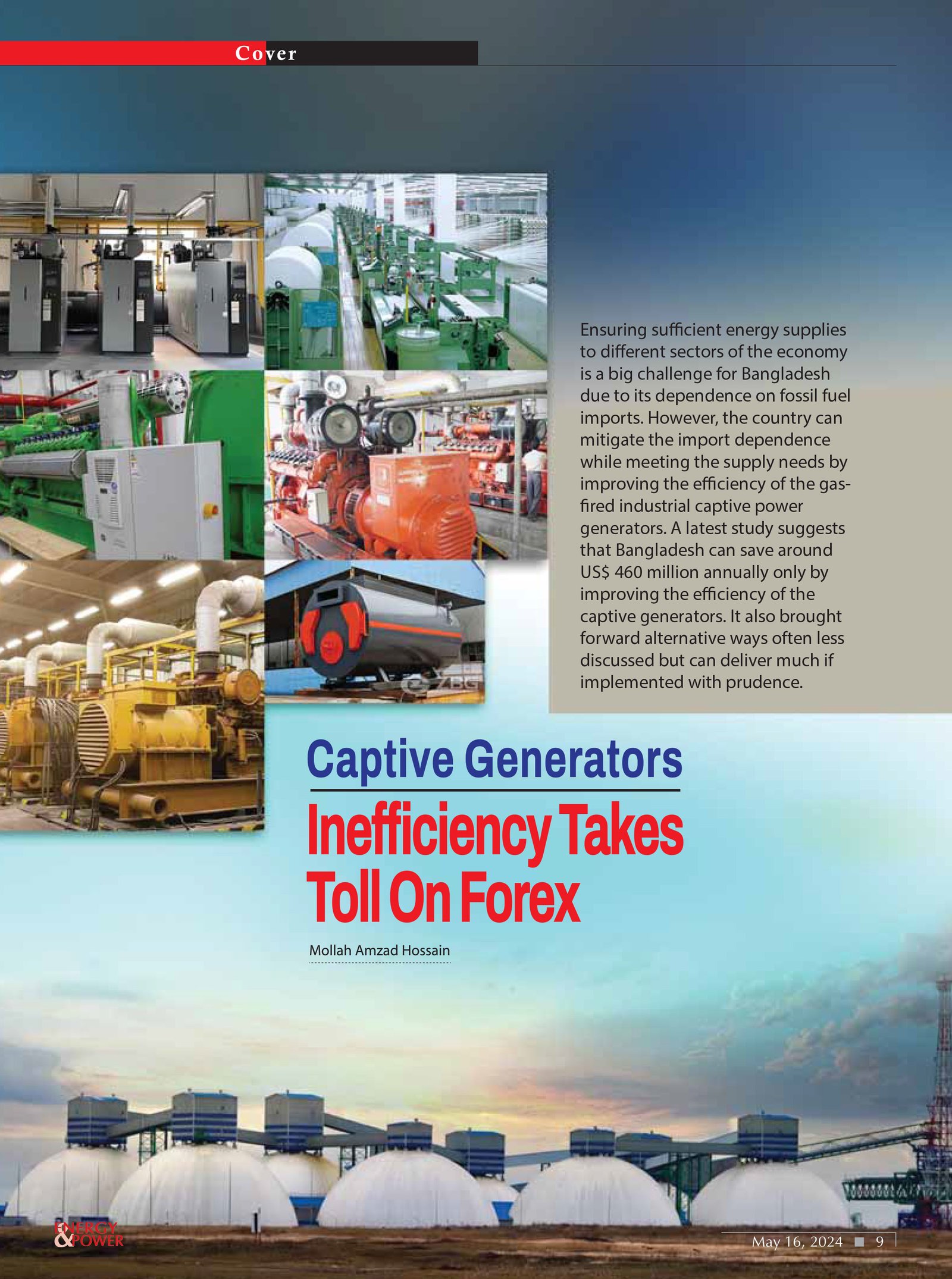
How can Bangladesh reduce its imported fossil fuel dependence while maintaining sufficient energy supplies to different sectors of the economy? That remains a big challenge for Bangladesh, a country that propelled a laudable economic development in the past decade and wants to be a developed nation by 2041. Bangladesh's plan to rely on imported fossil fuels perhaps did not consider unforeseen variables such as the depreciation of the local currency against the US dollar.
These trigger the need for additional ways other than only supplying expensive and imported fossil fuels to different energy-consuming sectors. The Institute for Energy Economics and Financial Analysis (IEEFA), a US-based global think-tank, has exactly brought forward an alternative way that is often less discussed but can deliver a lot if implemented with prudence.
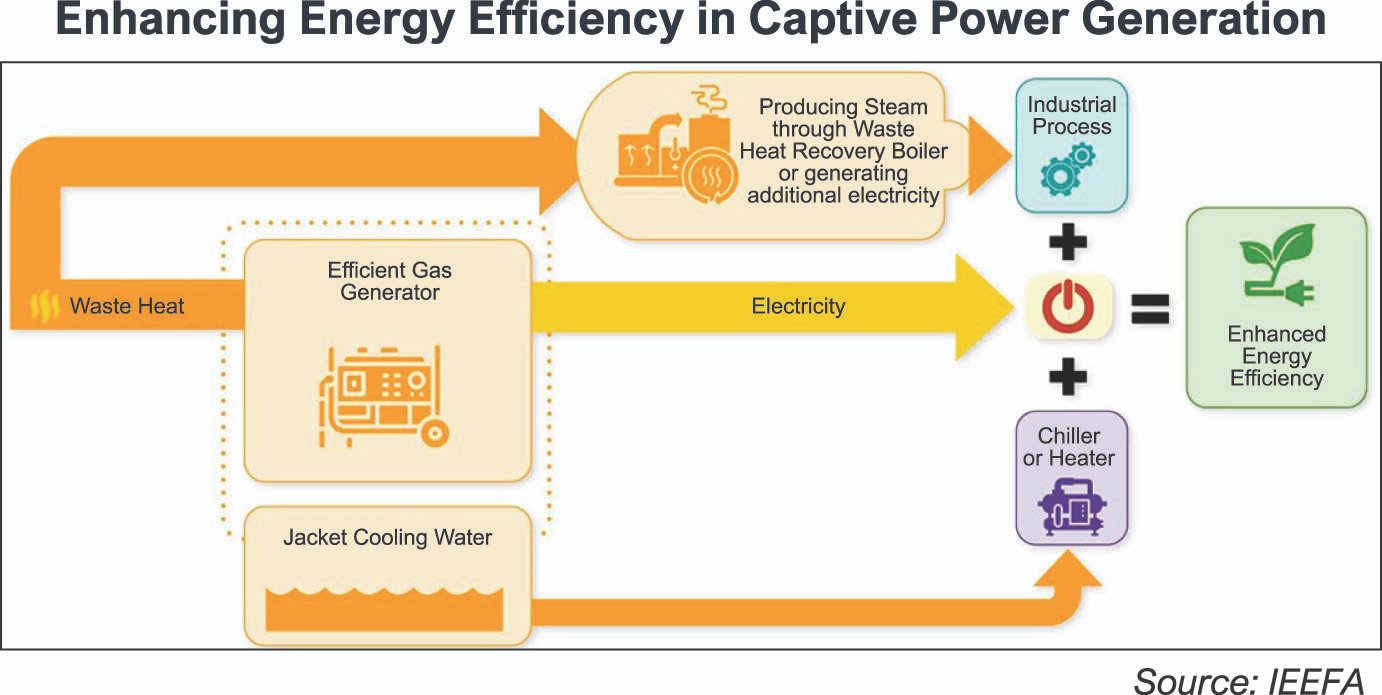
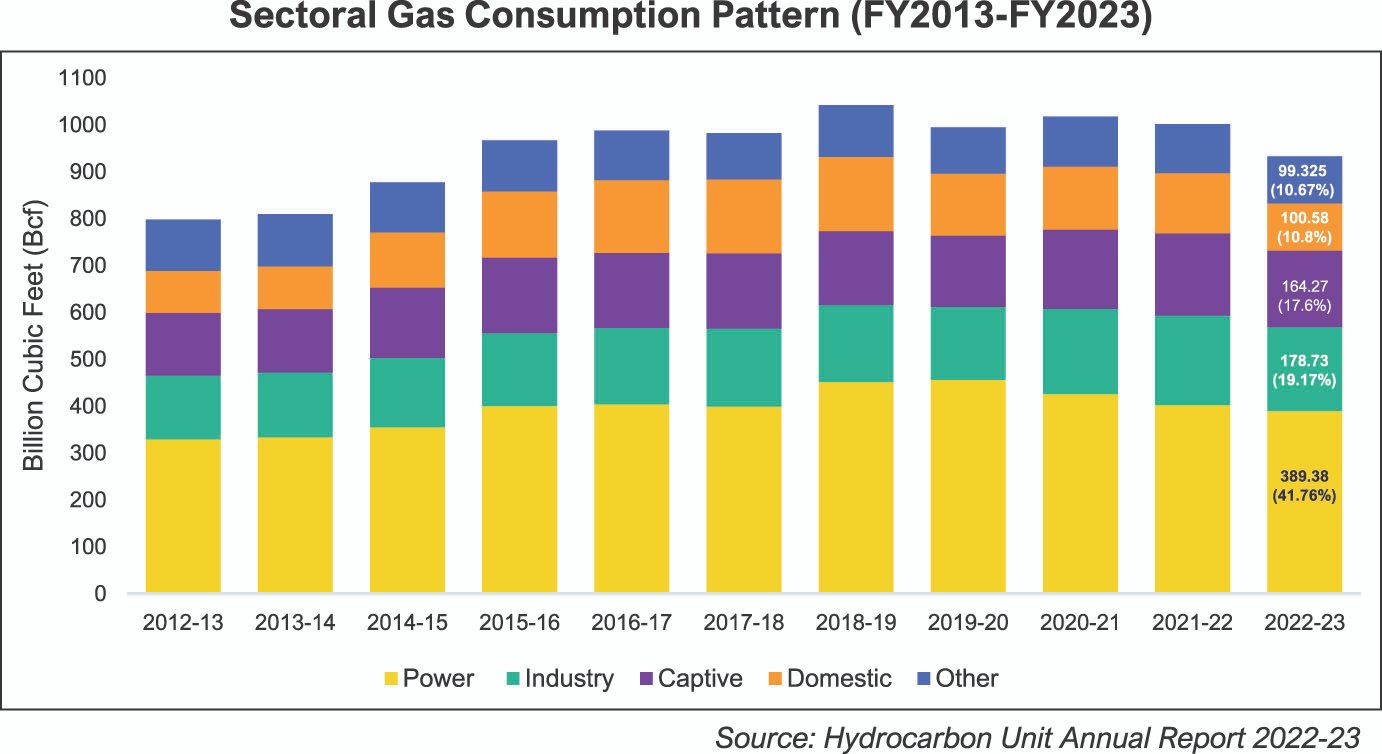
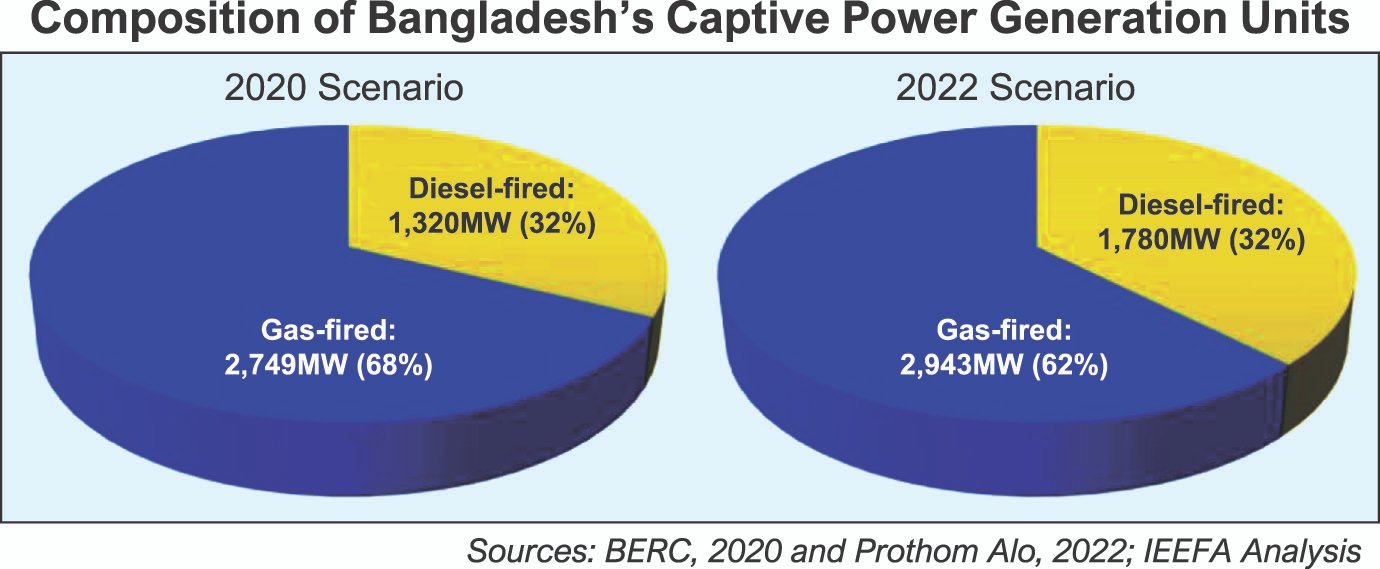

IEEFA’s recent study “Industrial energy efficiency to curb Bangladesh’s short-term LNG demand growth” examined the level of energy efficiency in the captive power generation that is extensively used by industries given that they do not always find the grid electricity reliable. Despite a lot of discussions at different levels in the country, there was no evidence of the actual energy efficiency of the gas-fired captive generation in Bangladesh. As such, people were not aware of to what extent gas is efficiently used in captive generators.
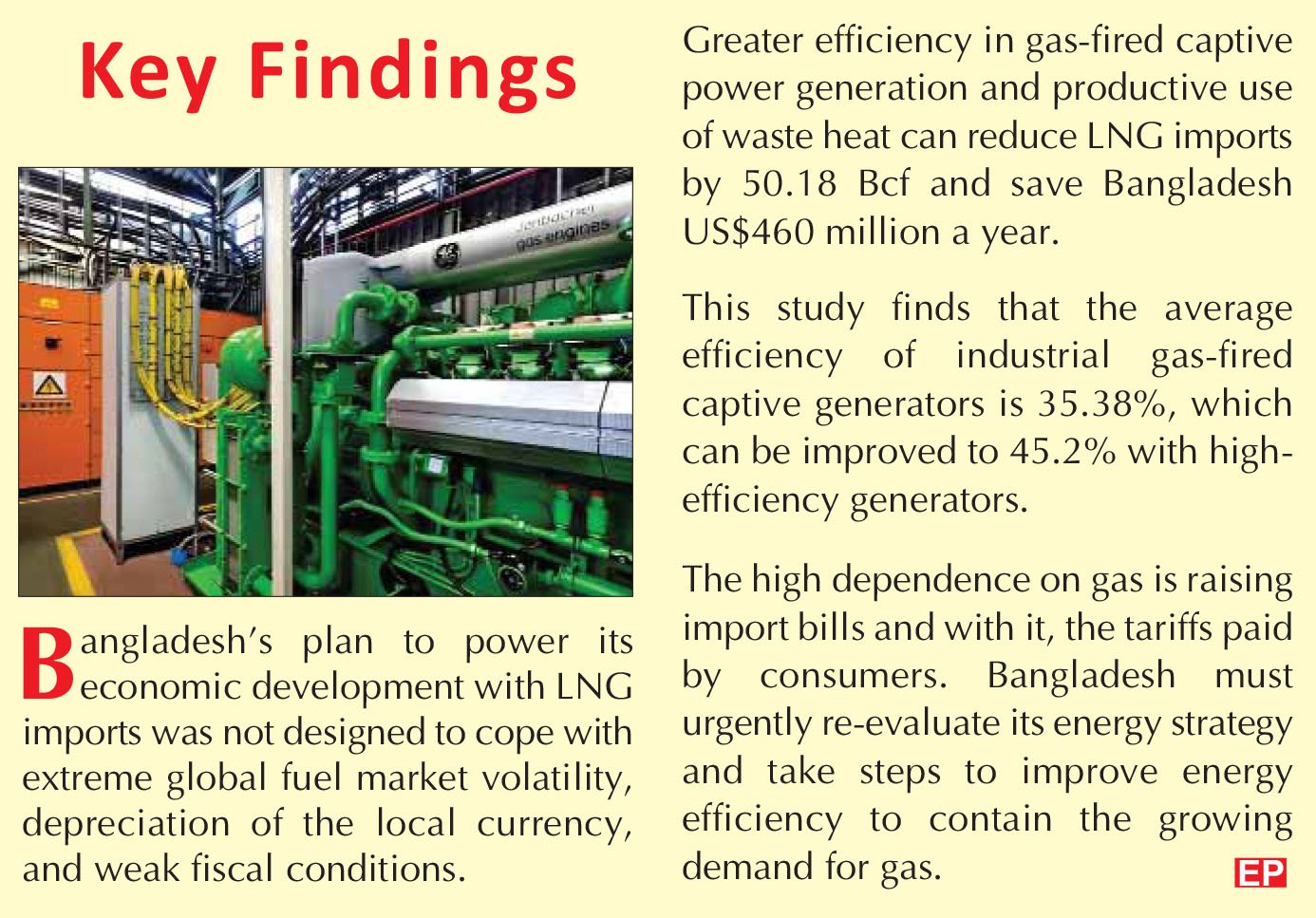
Additionally, waste heat released by the gas generators and the jacket cooling water of generators can do wonders by delivering energy for industrial processes and chillers/heaters. In this case, people had very limited insights about the application of waste heat in industrial processes and chillers/heaters.
Based on surveys in 51 Industries comprising 124 gas-fired generators with approximately 250MW power generation capacity, the author of IEEFA’s new report and also the Lead Analyst – Bangladesh Energy, Shafiqul Alam, has technically brought forward the current level of energy efficiency of the existing gas-fired generators and to what extent their efficiency can be improved. He has also analyzed to what extent industries are utilizing waste heat and jacket cooling water.
The study shows that Bangladesh can reduce LNG imports by 238.72 billion cubic feet (Bcf) annually if industries use efficient generators and can utilize waste heat in industrial processes and chillers/heaters. This saving will save the country’s foreign currency equivalent to USD 460 million per annum.

In the fiscal year 2022-23, the captive power generation sector consumed a significant 164.272 Bcf of gas (17.6% of the national gas consumption). While the advanced technology and net-zero outlooks show a limited role of gas in the captive power sector in 2050, other scenarios show quite an important role of gas in the sector in 2050 based on the latest IEPMP of Bangladesh. This means gas consumption in the captive generation will perhaps remain at a significant level even in 2050.
IEEFA’s study identified the average efficiency of the captive generators is currently 35.38% and this can be improved to 45.2%. As gas consumption in the captive generation is unlikely to end soon, this energy-saving opportunity Bangladesh must harness.
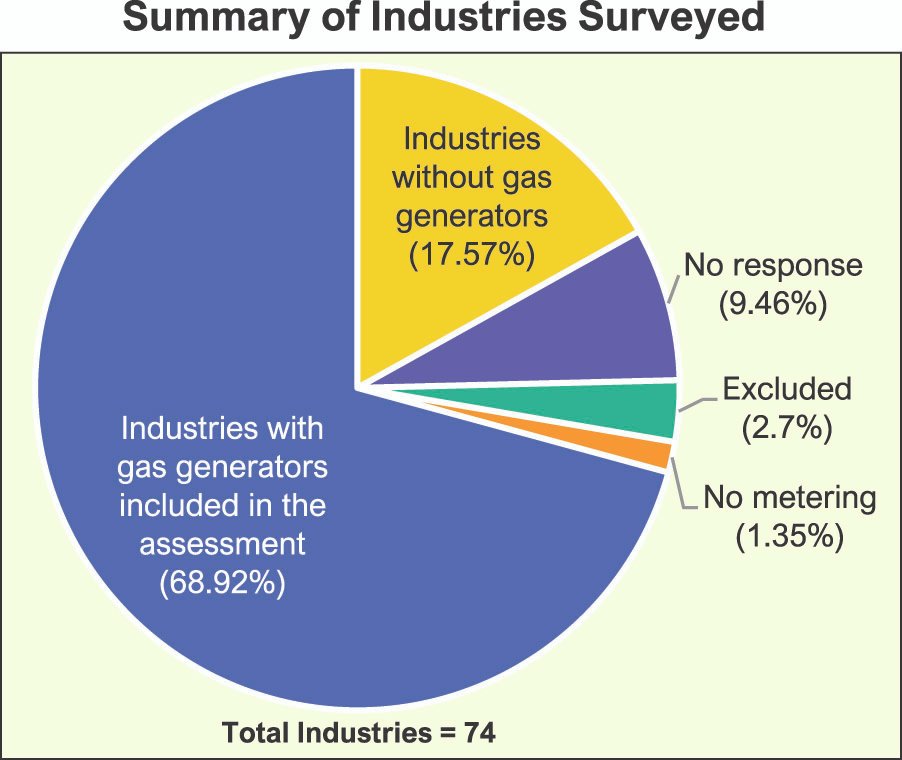
Similarly, when Bangladesh struggles to import sufficient fuel due to the dollar crisis, using the waste heat of generators to produce energy for industrial processes and to run a chiller/heater is a logical approach. The financial return on investment in waste heat recovery boilers is very quick.
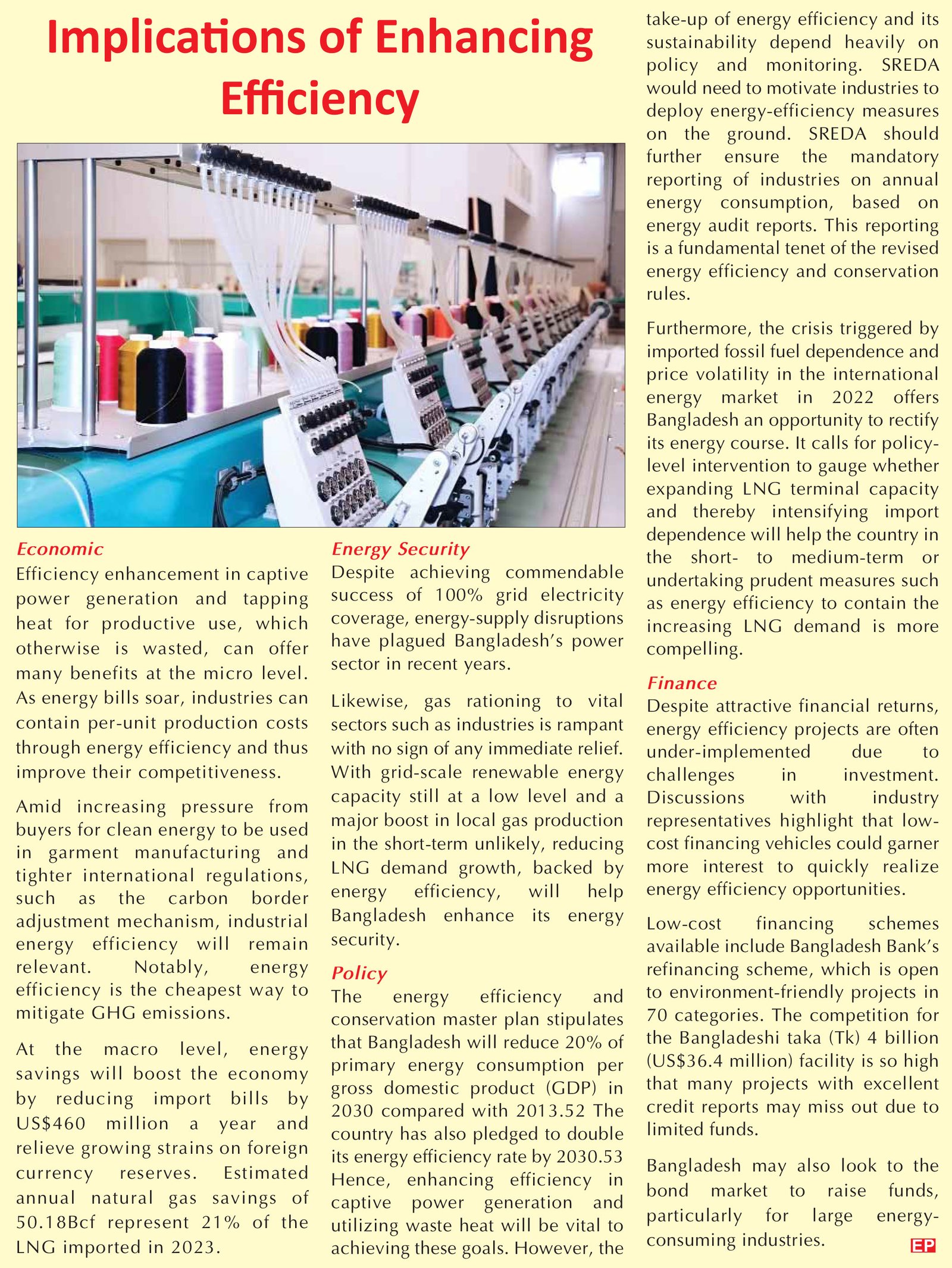
As awareness for environment-friendly products has increased in the world and different regulations for environment-friendly products are also being put in place in the world, industries that compete in the international market will have an advantage if they take energy-saving measures.
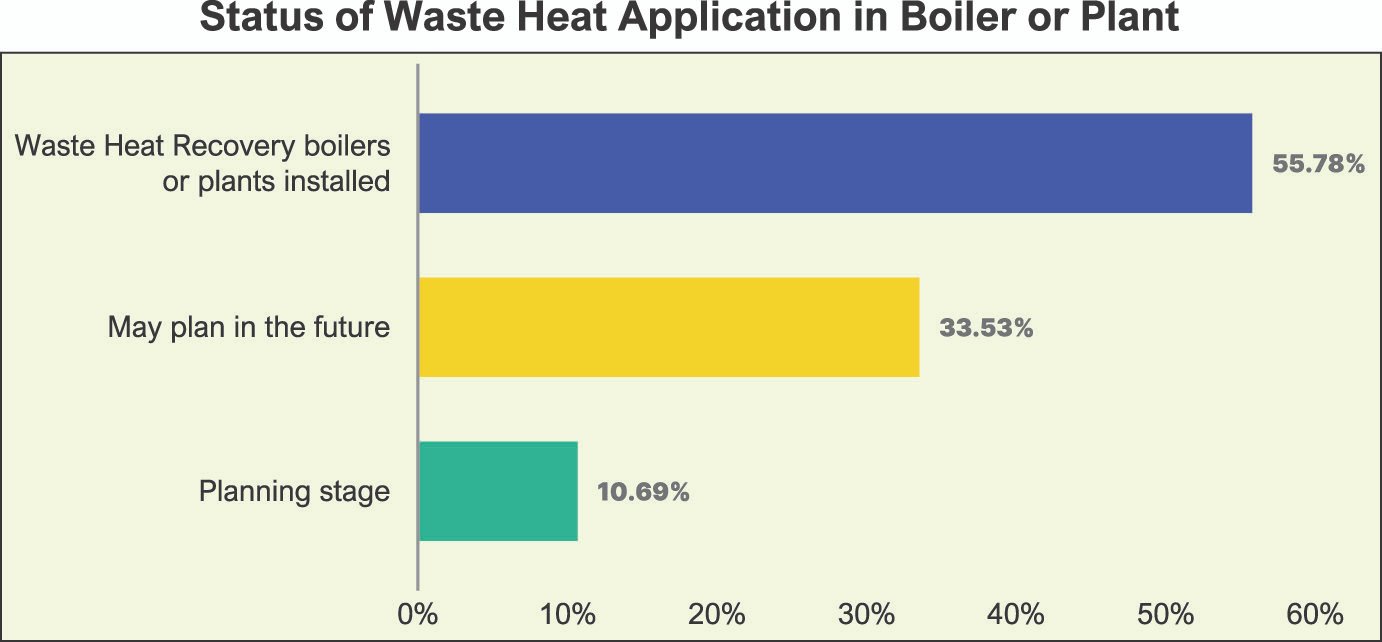
Moreover, energy is no longer cheap in Bangladesh. The government will increase energy prices in different phases over the next one or two years. Saving energy is vital for industries to be competitive.
The policy foundations for increasing energy efficiency exist in Bangladesh. The energy auditing of designated consumers, including industries, is mandatory. The Sustainable and Renewable Energy Development Authority (SREDA), the nodal agency to promote clean energy, may direct measures to upscale energy efficiency.
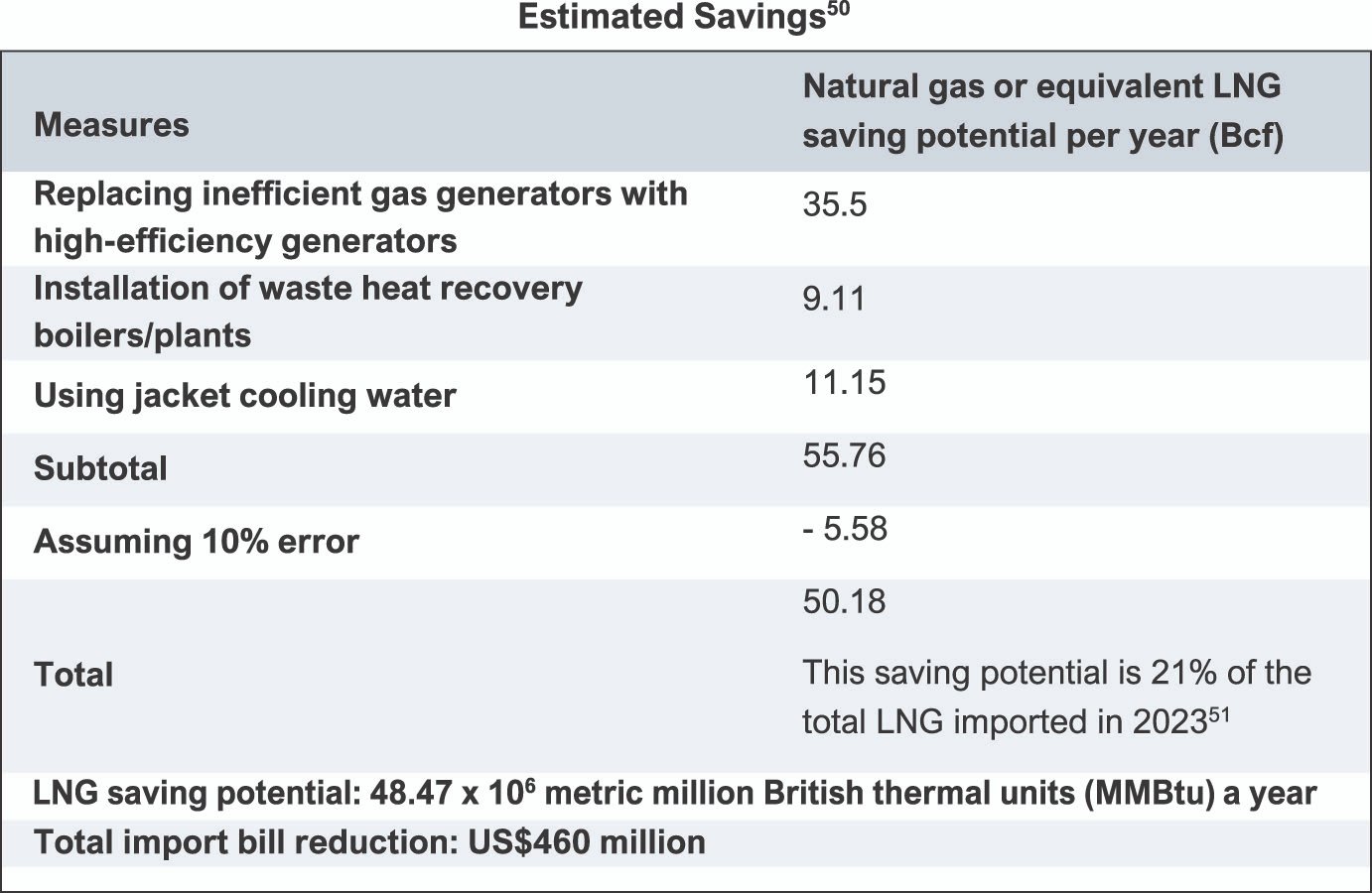
Bangladesh is at a fundamental disadvantage as it relies significantly on imported fossil fuels. As per the study, Bangladesh can take a comprehensive approach in the medium- to long-term, by:
-
Enhancing the reliability of the electricity grid to encourage industries to shift to grid power from captive generation.
-
Increasing renewable energy capacity and doing some pilot renewable energy projects with battery energy storage.
-
Building some gas-fired peaking power plants instead of only base-load plants to allow the integration of more renewable energy. Alternatively, retaining the gas turbines of old combined-cycle gas-fired plants, which are due to be phased out, as a source of power when renewable energy is not available.
-
Addressing inefficient energy use in the industrial process in a holistic way.
-
Facilitating the purchase of renewable energy by industries through corporate power purchase agreements.
These measures will help Bangladesh reduce its dependence on gas far more than efficiency improvements in captive generation alone.
However, if Bangladesh does not find ways to minimize fossil fuel imports, its vulnerability linked to the international fossil fuel market may increase further.
Downloan Cover As PDF//userfiles/EP_21_23_Cover.pdf




